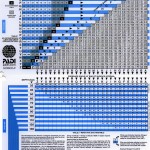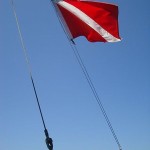You may remember a week ago I spoke of a recent study indicating a link between repeated scuba diving, especially with mixed gases, and damage to blood vessels. I asked the great folds at the Divers Alert Network (DAN) for some more information. I received a response back from John U. Lee a DAN medical information specialist who is a EMT, DMT (Diver Medic Technician), and CHT (Certified Hyperbaric Technologist) as well as Dr. Dick Vann a preeminent researcher on DCS and diving fatalities.
From Lee
Thank you for your recent inquiry regarding the recent abstract presentation on endothelial function and diving. DAN is aware of this phenomenon and is engaged with researchers in diving medicine to help flush out the processes involved. Two of our researchers are presently in Croatia studying microparticles in divers – a trip prompted by a recent publication and collaborative opportunity with the hyperbaric and environmental physiology department at the University of Pennsylvania. DAN’s research involvement is being done in collaboration with researchers at the University of Split in Croatia.
The ultimate question is whether diving causes progressive or lasting endothelial damage that promotes or accelerates arterial disease. At present, the findings from research done at DAN on diving mortality, does not find an association between diving and arterial disease, but our work has been largely aimed at fatalities that occur while diving. Our diving fatality data indicates an association with underlying heart disease in about 25-30% of cases. These fatality statistics are consistent with the general population and do not indicate an increased or unique diving related risk. Said a slightly different way, the data neither supports nor suggests that divers are at a higher risk for arterial disease than the general population. Nonetheless, the potential link between diving and endothelial damage and the potential impact on general health is an interesting question.
The research on diving and endothelial function, looking at arterial flow rates is indeed intriguing, but we need to keep in mind that diving is not the only activity that may impact vascular function or provide physiological stress. We should also remain mindful that physiological responses do not necessarily equate to disease, trauma or future dysfunction. The real question is whether diving puts us at an increased risk of heart disease (the primary cause of death in this country). This is a question we just don’t have an answer to, but it is reasonable to say that the diving population has not suffered from a predisposition toward early death or heart/artery disease based on the data available.
At present, neither [Dr. Vann] nor I are aware of any association between diving and endothelial disruption that results in clinical findings or health risks. As he states, current research is underway to more fully explore this topic and we will all watch with interest.
At present DAN doesn’t have a stance as there just isn’t enough data to support concern about dive safety or personal health. This is an issue that we are actively engaged in and will continue to monitor.
From Dr. Vann
These studies apply sensitive measurements that are relatively new to diving and seem to detect stress responses that were hitherto unknown. Dr’s Neal Pollock and Petar Denoble (DAN Researchers) are presently in Europe working with Zeljko Dujic to collect dive profiles and blood for microparticle (MP) analysis.
The research in this area is certainly interesting and bears following, but the clinical significance of these findings remains in question. I wonder whether other stresses such as heat or exercise induce similar findings. Diving has been conducted for over 100 years, and I know of no evidence in humans associating diving with cardiovascular or endothelial damage that is clinically important.
Cardiovascular health is a significant problem in diving, however [i.e. greater risk of a diving related fatality in those divers wit preexisting CV conditions] . Four papers from the diving fatality workshop concerning CV health will be published in the Jul-Aug issue of UHM and address occult [concealed or hidden] heart disease, the major problem.






Appreciate you looking into all this, and running DAN’s feedback. This may all be related to a 2007 study at the Split School of Medicine (see http://jp.physoc.org/content/578/3/859.full) that examined the use of oral antitoxidants on diving-induced alterations in human cardiovascular function. At the time I read through it all, and the results seemed compelling enough that we’ve made it a routine to take Vitamin C and E before dives.
I guess nothing is ever totally safe or without consequences, and as divers we all take calculated risks. If scientific research shows how to avert some of that risk, then I am all for it.
Got a chuckle out of the reproduction of the PADI dive tables in your original blog on this. I had the tables up on my site on a feature explaining dive tables and dive table scenarios, and got a truly nasty letter from PADI’s lawyers demanding I take those down at once.